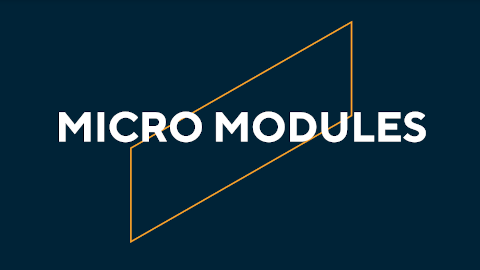The ECIU University launches its first micro-modules
Participating in the resolution of challenges and micro-modules will translate into a real impact on the community, city or region. Moreover, challenge-based learning will allow multidisciplinary and international teams to work together, by acquiring intercultural skills, developing problem-solving abilities and working in teams.

The ECIU University launches its first micro-modules so that students can join multidisciplinary and international groups with the aim of solving real-life problems. These challenges focus on the different aspects needed to work towards sustainable cities and regions and, therefore, meet the UN's sustainable development goal #11 (SDG 11).
Among other entities, businesses and governmental institutions are in charge of supplying these challenges, while each member university must select several from its region, city or community so that its students can work on them in teams. The challenges range from "Efficient Management of Resources in the City of Kaunas", at the Kaunas University of Technology, to the "Neutral Carbon Emissions City 2025" at Linköping University.
Enrolment requirements for the challenge-based modules and other micro-modules, as well as the type of teaching and duration of each module depends on each university. More information can be found in the links to each university.
Challenges offered by the UAB
In this first period, the UAB offers 4 challenges in which students can now enrol:
UAB Challenges: an event to generate ideas for new social and environmental challenges. This challenge is organised at the UAB campus.
Waste Management: the objective of this challenge is to provide the skills needed to manage waste as a resource, find energy efficient resources and reduce greenhouse gas emissions. The challenge is worth 6 credits and forms part of the master's degree in Interdisciplinary Studies in Environmental, Economic and Social Sustainability.
Looking at the World: Transdisciplinary Projects: worth 12 credits, this challenge fors part of the syllabus of the degrees at the Faculty of Education. The objective here is to provides students with the knowledge, analysis and comprehension of sociocultural, scientific and humanistic contexts currently existing in order to be able to adopt a critical and constructive position of today's reality and the transformations produced lately in all of these fields.
Integrated Practice: worth 6 credits and offered by the Faculty of Psychology, this challlenge aims to help students develop their independent learning skills so that they can come up with professional solutions to psychosocial problems, while always bearing in mind the sociocultural context from which they stem.
New micro-modules and challenges will be added to the offer in the following semesters.
Birth of the ECIU University
The ECIU University is one of the 17 international initiatives chosen by the European Commission after it announced its call for European Universities as part of the EU's Erasmus+ programme. The initiative will receive a total amount of five million euros in funding.
On 7 November 2019, the UAB played host to the event that marked the institutional launch of the ECIU University, an initiative by the European Consortium of Innovative Universities (ECIU), which aims to respond directly to today's social challenges through innovative training and research methods.
For more information please visit: Micro-modules ECIU University
The UAB, with Sustainable Development Goals
Affordable and clean energy
Quality education
Sustainable cities and communities
Partnerships for the goals